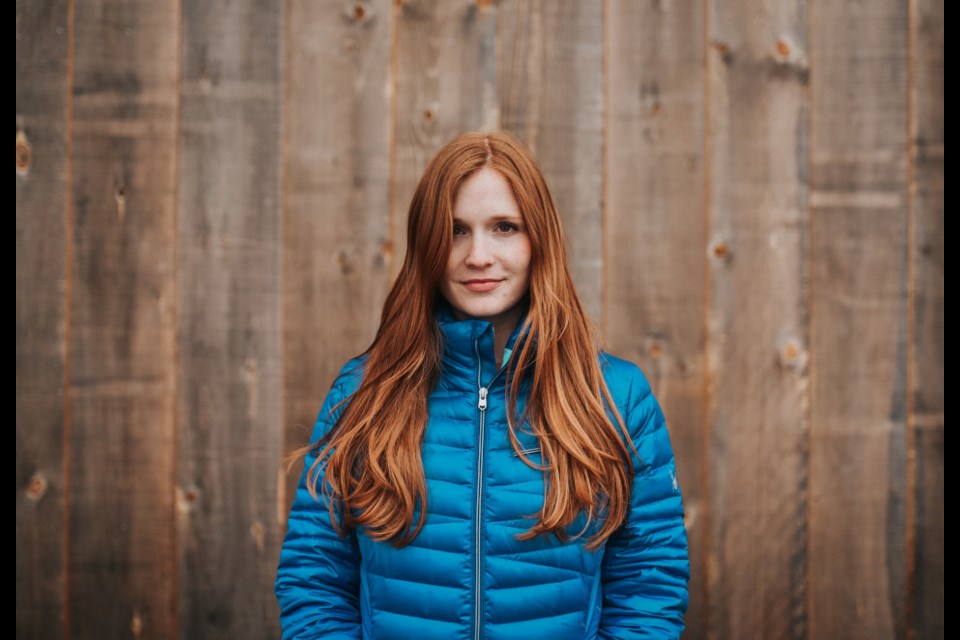Christine Leduc says it's an exciting time to be a woman in forestry.
Leduc, 32, is a woodlands operations supervisor at EACOM’s Timmins sawmill.
She was recently appointed vice-president of Forests Ontario, a non-profit that Leduc describes as a “really great” organization.
“It’s a cool position, to be VP. They have such wonderful programs, extensive tree plant programs and awareness initiatives. I think it’s a good compliment to the work I’m doing in EACOM,” she says.
In addition to her job at EACOM, she’s also the company’s Progressive Aboriginal Relations (PAR) lead.
Leduc moved to Timmins from Montreal in February 2021. It was a big move and Leduc says she is planning to take advantage of living in the north during the pandemic.
If she had been living in an urban setting, she wouldn’t have as many opportunities to be close to nature now, Leduc says. Being in the forest rain or shine, smelling the fresh-cut wood and seeing the forest at different stages of renewal is also helpful, especially in the pandemic.
“We have a different reality in Timmins that someone living in a condo in Toronto,” she says. “Just taking advantage of some of the activities we’re not used to doing like going out on walks or snowshoeing or boating. Activities that are really helpful for you in a pandemic.”
Before joining EACOM, Leduc worked at the Ontario Ministry of Natural Resources and Forestry and at the Ontario Forest Industries Association.
It's an exciting time to be a woman in forestry, Leduc says acknowledging the challenges the pioneer women in Ontario forestry had to overcome in a male-dominated field.
“But today we see women represented in all departments at EACOM and holding leadership positions for first times,” she says. “For me, as a young female professional in a sector to have female leaders as an example is really motivating.”
Leduc says throughout her life she pursued things that “stirred” her heart and mind, without having any expectations.
“You have to make decisions for yourself and right now I want to be close to the forest and learn more,” she says.
Recently, she planted her first tree, a jack pine, in the Pineland Forest. The experience of putting the first tree in the ground, knowing many more are yet to come, was a memorable moment that she will remember for a long time, she says.
“I remember where I planted that tree. I’m 32 now, I’ll keep an eye out on it, see how it’s doing,” Leduc says. “That first tree is a really special one, that you take extra care of. I hope those trees do very well.”
Leduc has been involved with many forestry organizations and programs. Since 2015, she has been a member of the Women in Wood network, where women support and encourage each other.
In her role as a mentor with the Project Learning Tree (PLT) Canada’s Green Mentor program, Leduc shares her knowledge and helps people entering the forest sector. She also enjoys spending time after work connecting with students or people beginning their careers.
“You can give your time in a formal mentoring program but you can also spend time at university networking sessions or having follow-ups one-on-one,” she says adding how it’s challenging for recent graduates to get an internship or a first job during the pandemic. “Recently, that’s been more of a focus and I do schedule quite a bit of those.”
Leduc, who was born in Val-d’Or and raised in Ottawa, says she loved going fishing with her father and she was always doing outdoor activities like biking, canoeing and camping. Her interest in the outdoors developed from a young age but it wasn’t until she started taking some forestry classes in university that she fell in love with this field.
During her post-secondary studies, she visited Malaysia and Ecuador where she saw first-hand the tropic deforestation and land conversion. That gave her confidence to pursue a career in Canadian forestry and made her realize the stark contrast in forest management between Canada and other countries.
Leduc says she wishes people were more aware of how forests are managed and she wants youth to know there are careers available in forestry.
In addition to forestry, Leduc is also passionate about diversity and inclusion, gender equality and encouraging and supporting youth. She says she approaches all of these issues from a forestry perspective because that’s how she feels she can contribute.
Six years ago, Leduc received the Canadian Institute of Forestry’s Prince of Wales Award for Sustainable Forestry and the Fernow Award from the Ontario Professional Foresters Association. In October 2020, she also made it into the Canadian Forest Industries Top 10 Under 40 that recognized the achievements of forest industry workers.
As she grew up in a French household, her ability to speak both languages comes in handy in her work as many company partners in the forest speak French.
“That ability to be out in the bush and then the operator comes out of the machine and starts talking in French, you have to be able to communicate. It’s definitely an asset,” she says.
Leduc says she has a lot of ambitions and still a lot to achieve so her most proud moments are still to come.
She says there’s no growth in life without being uncomfortable.
“You don’t grow if you’re not uncomfortable. Even if the experiences scare you … you have to go for it,” she says. “That’s when you’re going to get the most growth is when you have the moments that make you nervous or make you uncomfortable.”



